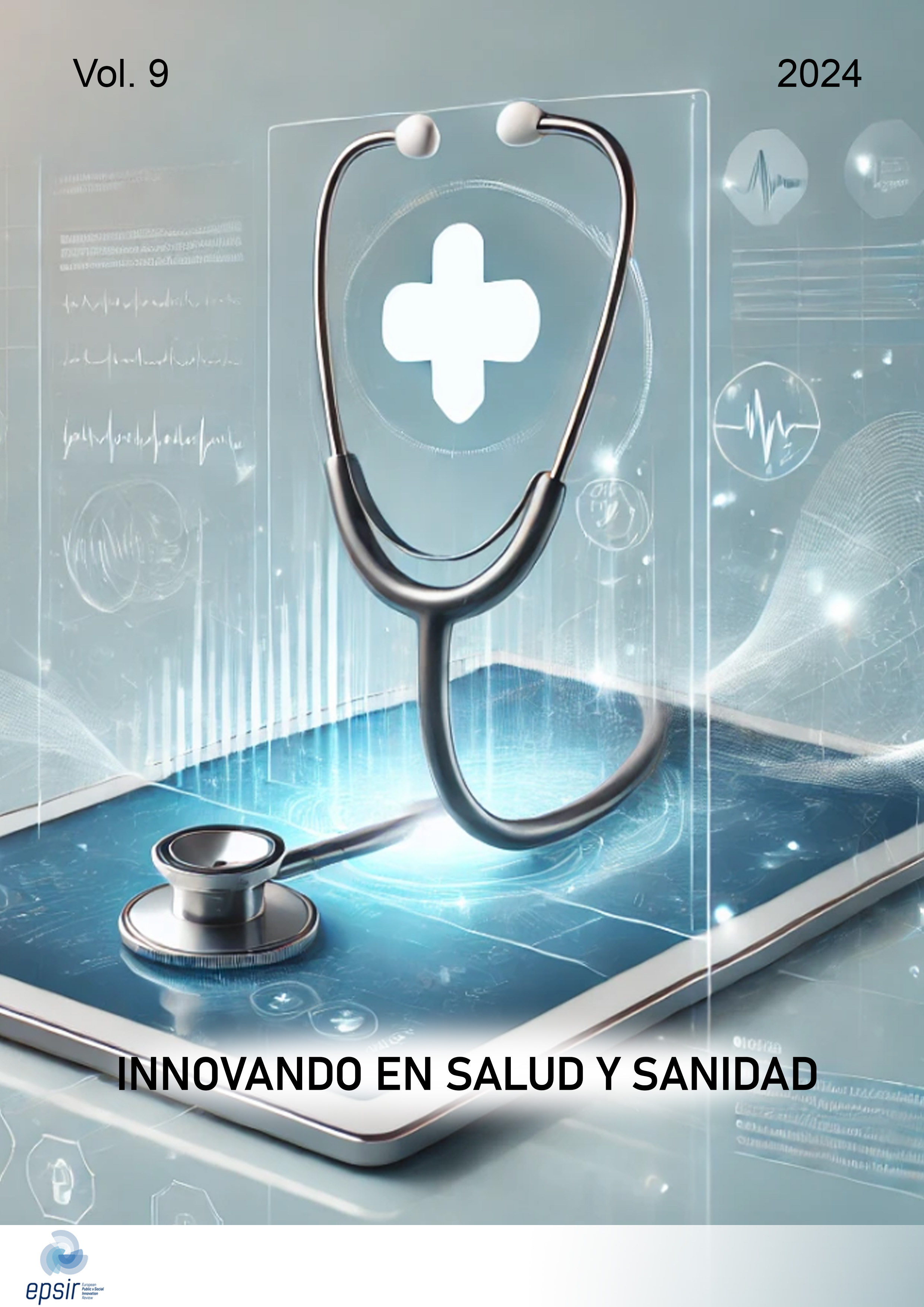Innovating in Health and Healthcare
DOI:
https://doi.org/10.31637/epsir-2024-1743Keywords:
Health innovation, Health artificial intelligence, Gender approach in health, Public health, Training of health professionalsAbstract
This monograph explores how innovation is transforming health and healthcare, focusing on the improvement of healthcare professionals' training, the gender approach, artificial intelligence, and workers' health. It highlights the importance of integrating the humanities into the education of healthcare workers to improve patient communication and human-centered care. Additionally, AI is revolutionizing diagnostics and treatments, optimizing resources, and enhancing health communication. The monograph also addresses the impact of misinformation and the need for innovative strategies in training and disease prevention in the workplace. It further explores research on chronic diseases and personalized treatments. Bioethics, especially in crisis situations, is another key topic. The monograph invites contributions that improve efficiency and equity in access to healthcare services.
Downloads
References
Abuín-Penas, J. y Abuín-Penas, R. (2022). Redes sociales y el interés por la información oficial en tiempos de pandemia: análisis de la comunicación de los Ministerios de salud europeos en Facebook durante la COVID-19. Revista de Comunicación y Salud, 12. https://doi.org/10.35669/rcys.2022.12.e303 DOI: https://doi.org/10.35669/rcys.2022.12.e303
Acuña-Hormazábal, A., Ganga-Contreras, F., Castillo, J. y Luengo-Martínez, C. (2022). Investigaciones sobre Engagement y Burnout: una aproximación teórica en tiempos de COVID-19. Telos: revista de Estudios Interdisciplinarios en Ciencias Sociales, 24(2), 370-383. www.doi.org/10.36390/telos242.10 DOI: https://doi.org/10.36390/telos242.10
Almeida, F. (2021). Social movements in a time of pandemic: The case of Tech4Covid19 in Portugal. European Public & Social Innovation Review, 6(2), 51-63. https://epsir.net/index.php/epsir/article/view/151 DOI: https://doi.org/10.31637/epsir.21-2.4
Barrientos-Báez, A. (2019). Redes sociales, salud física e inteligencia emocional. Tecnología Digital para la Salud y la Actividad Física, 291-315. Pirámide.
Ganga-Contreas, F., Viancos, P., Díaz-Barrios, J., Alarcón, N. y Sáez, W. (2021). Producción científica sobre coronavirus y SARS-CoV-2 publicada en revistas indexadas en la base de datos Scopus. Resultados hasta el 2020. Bibliotecas. Anales de Investigación, 17(2), 159-180. http://revistas.bnjm.sld.cu/index.php/BAI/article/view/411
Loiti-Rodríguez, S., Genaut-Arratibel, A. y Cantalapiedra-González, M. J. (2024). La animación como recurso informativo para el empoderamiento en salud: el caso del Sistema Nacional de Salud de España en YouTube. Revista Latina de Comunicación Social, 82, 1–17. https://doi.org/10.4185/rlcs-2024-2207 DOI: https://doi.org/10.4185/rlcs-2024-2207
Nuevo-López, A., López-Martínez, F. y Delgado-Peña, J. J. (2023). Bulos, redes sociales, derechos, seguridad y salud pública: dos casos de estudio relacionados. Revista de Ciencias de la Comunicación e Información, 28, 120–147. https://doi.org/10.35742/rcci.2023.28.e286 DOI: https://doi.org/10.35742/rcci.2023.28.e286
Vargas, J. J. y Yébenes Cortés, M. P. (2023). Salud mental y cobertura mediática del COVID-19: una investigación de los efectos del manejo de la televisión y la interrelación eficiente de la ansiedad a través de la técnica dual: sufrimiento vs dolor, para la mejora del estrés generado por la pandemia. Vivat Academia, 156, 288–305. https://doi.org/10.15178/va.2023.156.e1464 DOI: https://doi.org/10.15178/va.2023.156.e1464

Downloads
Published
How to Cite
Issue
Section
License
Copyright (c) 2024 Guillermo Mejías Martínez , Mónica Fernández Morilla , Benito Zamorano González

This work is licensed under a Creative Commons Attribution-NonCommercial-NoDerivatives 4.0 International License.
Authors who publish with this journal agree to the following terms:- Authors retain copyright and grant the journal right of first publication with the work simultaneously licensed under Creative Commons Non Commercial, No Derivatives Attribution 4.0. International (CC BY-NC-ND 4.0.), that allows others to share the work with an acknowledgement of the work's authorship and initial publication in this journal.
- Authors are able to enter into separate, additional contractual arrangements for the non-exclusive distribution of the journal's published version of the work (e.g., post it to an institutional repository or publish it in a book), with an acknowledgement of its initial publication in this journal.
- Authors are permitted and encouraged to post their work online (e.g., in institutional repositories or on their website) prior to and during the submission process, as it can lead to productive exchanges, as well as earlier and greater citation of published work (See The Effect of Open Access).


